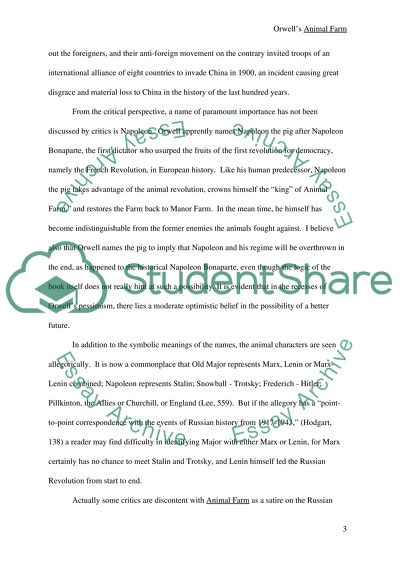Cite this document
(“George Orwells Animal Farm Book Report/Review Example | Topics and Well Written Essays - 2000 words”, n.d.)
Retrieved from https://studentshare.org/literature/1528160-george-orwells-novel-animal-farm
Retrieved from https://studentshare.org/literature/1528160-george-orwells-novel-animal-farm
(George Orwells Animal Farm Book Report/Review Example | Topics and Well Written Essays - 2000 Words)
https://studentshare.org/literature/1528160-george-orwells-novel-animal-farm.
https://studentshare.org/literature/1528160-george-orwells-novel-animal-farm.
“George Orwells Animal Farm Book Report/Review Example | Topics and Well Written Essays - 2000 Words”, n.d. https://studentshare.org/literature/1528160-george-orwells-novel-animal-farm.


